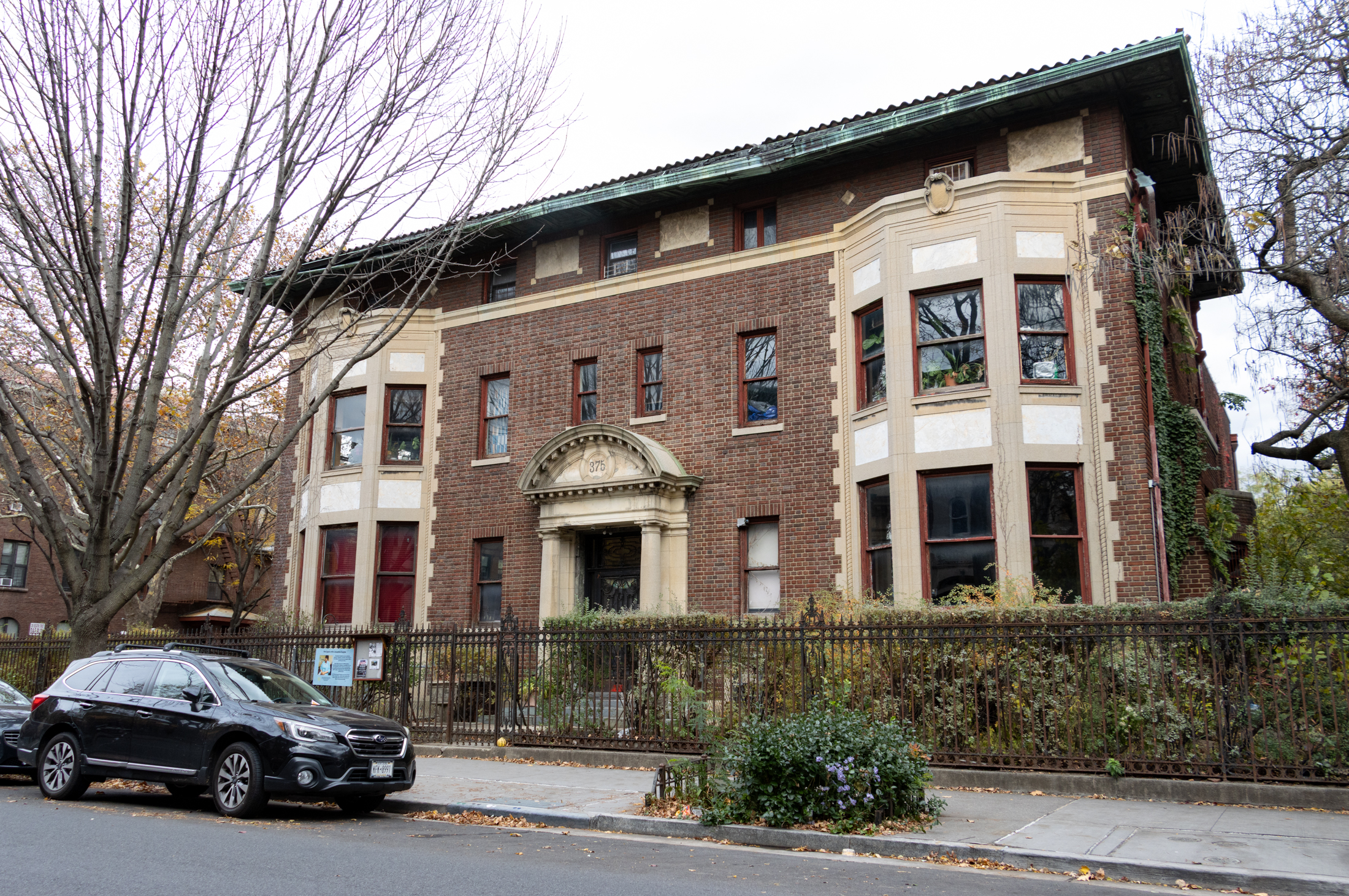Real Estate: The New Obscenity?
The lead article in the real estate section of The New York Times this weekend attempts to make the case that real estate has gone from Topic No. 1 to Topic Non Grata in the last six months. Nobody wants to talk about it,” The Times quotes one hedge fund manager as saying. We’re not…

 The lead article in the real estate section of The New York Times this weekend attempts to make the case that real estate has gone from Topic No. 1 to Topic Non Grata in the last six months. Nobody wants to talk about it,” The Times quotes one hedge fund manager as saying. We’re not so sure that’s the case. People may be acting more discreetly when they bring it up, but, in our experience, it’s still just as much on everyone’s minds as before, although now, instead of being obsesses with how much the value of their house has gone up, it’s all about how far the value has fallen. Have you noticed a decrease in the amount people are talking about real estate or just a different tone?
The lead article in the real estate section of The New York Times this weekend attempts to make the case that real estate has gone from Topic No. 1 to Topic Non Grata in the last six months. Nobody wants to talk about it,” The Times quotes one hedge fund manager as saying. We’re not so sure that’s the case. People may be acting more discreetly when they bring it up, but, in our experience, it’s still just as much on everyone’s minds as before, although now, instead of being obsesses with how much the value of their house has gone up, it’s all about how far the value has fallen. Have you noticed a decrease in the amount people are talking about real estate or just a different tone?
Don’t Even Say the Words [NY Times]
Photo by solupine





@basement:
Being wrong about one thing doesn’t mean one is wrong about other things. In any case, Y2K problems were averted by preventive actions that were taken in part because of the alarms raised by Kunstler and others. And peak fossil-fuel energy and attendant economic and social instability is a fact of our times, as former Energy Secretary James Schlesinger and other non-controversialists have warned.
Energy prices are low for now, but China and India’s growing demand combined with depleting oil fields and absence of sufficient other economically viable sources of oil mean that at some point, the s*** will hit the fan and oil prices will climb.
The moment at which this begins to affect daily life, in particular the food supply (American industrial agriculture is dependent on fossil-fuel inputs, for fertilizer and transport to market over thousands of miles) — whether it’s this year, or next year, or five years from now, I don’t expect any pundit to be able to predict precisely — only that it will happen sooner rather than later. Kunstler and others have been the few observers who weren’t drunk/asleep at the wheel in seeing this and the fak-wealth crisis coming down the pike.
@Heather, buying and selling locally made products and home grown food is what makes local economies exist. Do you think the rest of the world is going to keep sending us cheap goods on our worthless promises of payment? Obviously no one is going to stop buying coffee from Guatemala as long as we can get it. It would be nice if we could keep getting most of our food trucked in from thousands of miles away, but it may not be economically supportable, in which case I am sure everyone will prefer “locovorism” to hunger!
@zuleika:
Depends how you define “predicting the death” of cities, but if you read The Long Emergency, e.g., he is essentially predicting the return of a semi-agrarian lifestyle. I don’t think it’s an ad hominem attack to note that he has cited a number of crises, real or otherwise (as with Y2K–http://www.kunstler.com/mags_y2kassess.html), to substantiate a change in lifestyle that he has advocated for decades. It’s relevant to considering the source: he may be right this time, but he has a history of gathering evidence to reach his preferred conclusion. And again, he’s not the only one–Richard Florida thinks that the economic crisis will reshape the country the way *he* wants it to be, etc.
“Fed sets the rates, decides when to raise or lower them, issues treasury bonds (benchmark for all others) into the economy as needed. ”
The other way around Heather, the other way around.
This affects the bond market, as bonds prices rise when interest rates fall and vice versa. What am I missing?
Interest Rates are controlled by the Bind Market, not by the Federal Reserve!
http://www.bloomberg.com/markets/rates/index.html
The Federal Reserve follows the 13 week Treasury Bond for overnight lending rates.
Yahoo IRX
http://tinyurl.com/cpvz25
The What
Someday this war is gonna end…
What, I’m not so sure you should be so quick to call me a retard, considering I often agree with you — albeit not in quite as dramatic a way and with less actual evidence.
Fed sets the rates, decides when to raise or lower them, issues treasury bonds (benchmark for all others) into the economy as needed. This affects the bond market, as bonds prices rise when interest rates fall and vice versa. What am I missing?
“They can’t raise interest rates, is the thing. I think. If they do it’ll all collapse, and yet if they don’t, at best, we get inflation. I think we NEED inflation, honestly. But I don’t think it’s gonna be pretty.”
Note: Put Heather on Retard list!
Interest Rates are controlled by the Bind Market, not by the Federal Reserve!
http://www.bloomberg.com/markets/rates/index.html
The Federal Reserve follows the 13 week Treasury Bond for overnight lending rates.
Yahoo IRX
http://tinyurl.com/cpvz25
Keep you eye peeled right here folks! This is the area of the subatomic flash! The Mutant Asset Bubble will start it’s collapse right here!
The What
Someday this war is gonna end….
They can’t raise interest rates, is the thing. I think. If they do it’ll all collapse, and yet if they don’t, at best, we get inflation. I think we NEED inflation, honestly. But I don’t think it’s gonna be pretty.
(Nor do I think it’s going to be post-apocalyptic… but really not pretty.)
Can you get inflation and deflation at the same time? Cause I think that would be extremely bad.
Re: Kunstler, I agree with him about the suburbs, I’ve always hated suburbs, but why oh why does he also have to insert the whole locovore movement into it? You know what would really kill the economy? Buying local.
Dave, it has been my experience that the market freezes when interest rates go up, as happened in July ’08. It thawed out a bit in September (when the weather improved).
Prices will drop when interest rates rise, but the monthly cost for those borrowing will be much higher. As was the case for years and years.
******Cats******* ******Cats******* ******Cats*******
******Cats******* ******Cats******* ******Cats*******
******Cats******* ******Cats******* ******Cats*******
******Cats******* ******Cats******* ******Cats*******
******Cats******* ******Cats******* ******Cats*******
******Cats******* ******Cats******* ******Cats*******
******Cats******* ******Cats******* ******Cats*******
******Cats******* ******Cats******* ******Cats*******
******Cats******* ******Cats******* ******Cats*******
******Cats******* ******Cats******* ******Cats*******
What / BHO – the accounting change in 157-e just released is not mark to myth. In actuality if you read the new disclosure which no doubt you haven’t, you’d understand that the FASB board backed down from the original recomendation to mark assets to distressed levels unless proven otherwise. You know why they didn’t change it ? becuase the broker dealer community pushed back on it.
What basis do you have for Citi having 1 trillion of level 3 ? Once again – that’s not correct. That’s over half their balance sheet. Check your facts.